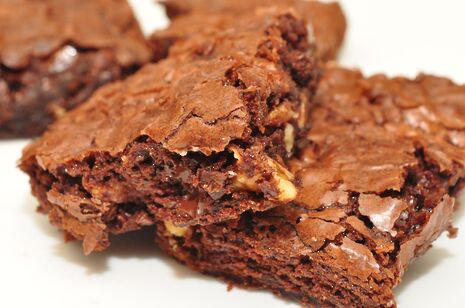Diary of a recovering alcoholic: on anorexia
This week, a guest column about battling another kind of addiction

I have written before about the similarity of all addictions; they are really just one disease manifesting in different forms. I asked my friend, an ex-Cantab to write about their experience with an eating disorder.
I arrived in Cambridge straight out of school. I’d always been a conscientious student and had never been in trouble. University life changed that. I started drinking heavily, smoking, going out every night of the week and taking drugs. Somehow, I expected all of this. The thing I wasn’t prepared for was an eating disorder.
Ever since I was little, I’d been a fussy eater. I’d go through phases of eating cereal and nothing else. I struggled to eat in front of other people and stopped going to the college cafeteria. I blamed it on the opening hours, but the reality was I found the whole experience overwhelming.
Eating slipped down my list of priorities. I’d eat very little in the day, fuelling myself with coffee and cigarettes, and would then drink in the evenings. Frequently I’d get drunk, binge on food from Gardies and then vomit. It was a horrible cycle but one that I thought fine because I wasn’t putting on weight.
This continued my whole time at Cambridge. When I left, I moved back to London and thought these eating patterns would disappear. They did, but were replaced by food obsession. I’d record everything that passed my lips on a spreadsheet. I went mad with ‘healthy eating’ and was completely obsessed with my body. I still binged, but this time even when I wasn’t blind drunk. I worked in a hotel and would eat dirty food off room service trolleys. The shame when I was caught was unbearable, but not enough to make me stop.
When I entered recovery for alcoholism a friend suggested I might want to look at my food too. I had no idea why. I thought that everyone behaved the way I did. The idea of going to another recovery programme, this time for food, was too much to bear. How could I have an eating disorder? I wasn’t super skinny nor was I overweight; just the low end of normal.
One day, following a binge at my friend's house, I nearly passed out at the wheel of my car. That food could take me to this place was finally too much. I went to a recovery meeting the next day, absolutely terrified.
It took me a while to surrender and accept help. Finally I did, and with the help of others I developed a food plan. There are certain foods that send me into a spin. Once I have a bite, I want more and can’t stop thinking about them. Brownies and cheesecake were two big ones for me. The bingeing was easier to tackle than the anorexia. My anorexic thinking wants me to be ‘healthy’ and has a terrible fear of getting fat. I had to challenge that.
It was incredibly painful. But it got easier. My biggest fear of ballooning over night and having to be lifted out of my house with a crane hasn’t come true and I’m able to eat things that I never thought I’d eat again. I’m less obsessed with how I look and have freedom from the obsessions around food. It has taken time but has changed my life.
Before I came into food recovery I’d not been able to hold down a job, couldn’t relax around friends and was always on edge. Today I’m happy.
Last year, I went to a reunion. It was strange to be back, it felt like I never left. I was so pleased to see posters offering help and advice to anyone with an eating disorder. To anyone still suffering I’d urge you to speak to someone. The shame and secrecy that I thought was keeping me safe was actually keeping me from being happy. Today I’m free from food obsession. I’ve now been in food recovery for nearly four years and I honestly didn’t think that was possible or that I would feel genuinely happy writing this. Recovery is an amazing gift.
For anyone who is interested, this is the group that helped me: http://www.oagb.org.uk/
 News / Police to stop searching for stolen Fitzwilliam jade17 April 2024
News / Police to stop searching for stolen Fitzwilliam jade17 April 2024 Interviews / ‘It fills you with a sense of awe’: the year abroad experience17 April 2024
Interviews / ‘It fills you with a sense of awe’: the year abroad experience17 April 2024 News / Night Climbers call for Cambridge to cut ties with Israel in new stunt15 April 2024
News / Night Climbers call for Cambridge to cut ties with Israel in new stunt15 April 2024 Sport / Kabaddi: the ancient sport which has finally arrived in Cambridge17 April 2024
Sport / Kabaddi: the ancient sport which has finally arrived in Cambridge17 April 2024 Features / Cambridge’s first Foundation Year students: where are they now?7 April 2024
Features / Cambridge’s first Foundation Year students: where are they now?7 April 2024





